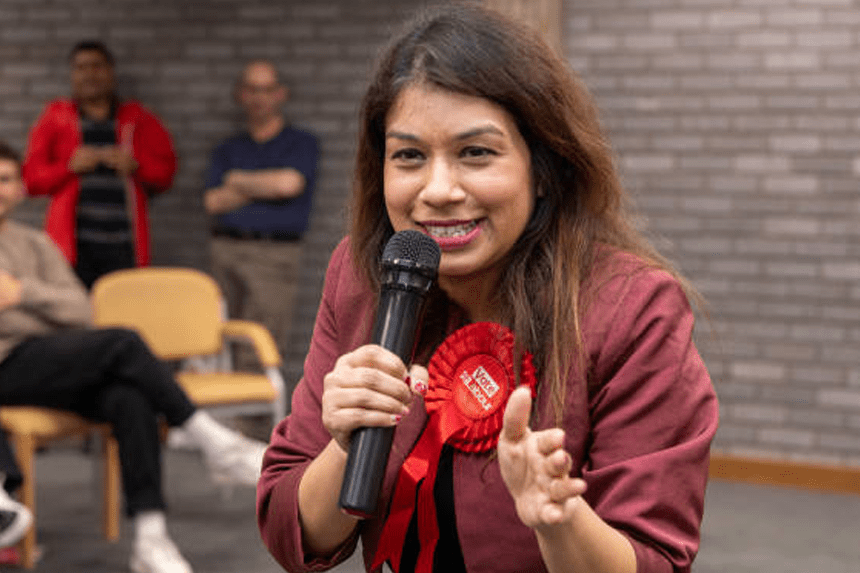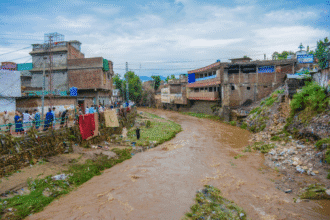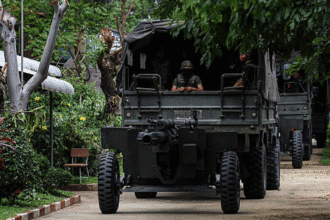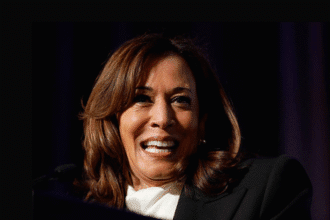As Bangladesh corruption claims connected to a contentious land deal make news worldwide, UK Labour MP Tulip Siddiq is under more and more scrutiny. Connected to land donated during the tenure of Prime Minister’s aunt Sheikh Hasina, the accusations have caused diplomatic conflict and political discussion in Bangladesh as well as the UK.
- What Are the Principal Allegations Made Against Tulip Siddiq?
- Why Did Muhammad Yunus Denish a Meeting?
- How has the UK responded to the claims of corruption from Bangladesh?
- What steps is the Interim Government of Bangladesh now taking?
- How has the Bangladeshi community living in the UK responded?
- For Siddiq and the investigation, what is ahead?
Under the direction of Nobel Peace Prize winner Muhammad Yunus, Bangladesh’s interim government has been adamant. Yunus turned down Siddiq’s invitation to a meeting during a recent trip to London, stating the problem is a legal one and ought to follow due process. Emphasizing that the Anti-Corruption Commission (ACC) of Bangladesh should be allowed to investigate on its own, he stated, “It’s not appropriate to intervene in court matters.”
What Are the Principal Allegations Made Against Tulip Siddiq?
Allegations of corruption in Bangladesh center on Siddiq allegedly profiting from land sold under her aunt, Sheikh Hasina’s, administration. The ACC thinks some land allotments were made illegally and might have included valuable assets given to those closely related to government officials.
Strongly rejecting the claims, Siddiq has labeled them as politically driven, devoid of any convincing data. She claims that the Bangladeshi government has opted to publicize the subject rather than assist her legal counsel. Said another way, “If this were a legitimate legal process, I would expect proper engagement with my lawyers.”
To further muddle things, Siddiq says official case mail has been delivered to a house in Dhaka where she has never lived. She claims that this is a part of a strategy meant to discredit her and tarnish her public image before important political events in both nations.
Why Did Muhammad Yunus Denish a Meeting?
Siddiq wrote Muhammad Yunus a letter asking for a direct meeting to clear the accusations during his four-day trip to the UK. She said in her letter that such a conference might assist the ACC to clear “misunderstandings” that it is spreading.
Yunus, though, stayed to his guns. “This relates to court. He told reporters he did not meddle. “As chief adviser, I have full confidence in the Anti-Corruption Commission,” Yunus said when asked whether Bangladeshi prosecutors should show Siddiq more openness or share the evidence with him. Let the court process go forward.
Along with criticism from Siddiq and her allies, this choice set waves in diplomatic circles. Given the tight relationships between Siddiq and UK Prime Minister Keir Starmer, who is also her constituency neighbour, some onlookers speculated that a meeting might have helped to defuse tensions. Read another article on the Bangladesh Delegation Visits China
How has the UK responded to the claims of corruption from Bangladesh?
Sir Laurie Magnus, the ethical adviser for the UK Prime Minister, reviewed Siddiq’s behaviour internally earlier this year. The investigation noted that Siddiq should have been more conscious of the reputational concerns connected with her family ties in Bangladesh, even if it revealed no clear proof of misbehavior.
The Bangladesh corruption claims follow her even if she was cleared of ethical transgressions in the UK. Some political analysts think the matter could affect her long-term employment possibilities, especially if Bangladeshi authorities file official accusations.
While on his tour, Yunus visited King Charles and UK Business Secretary Jonathan Reynolds; yet, Prime Minister Starmer did not meet him. Though disappointed, Yunus stayed polite, stating, “It’s a missed opportunity for both of us.”
What steps is the Interim Government of Bangladesh now taking?
Bangladeshi officials claim that corruption under Sheikh Hasina’s regime is shockingly widespread. An estimated $234 billion is thought to have been stolen; most of it appears to have been transferred or spent elsewhere, particularly in the UK.
In response, the temporary administration has kept legal counsel in London to help locate and reclaim the missing property. Declaring, “I have a lot of admiration for the promptness with which they are treating the whole subject,” Yunus has publicly lauded the UK government for their collaboration.
Furthermore, allegedly investigating ways to assist Bangladesh’s anti-corruption initiatives is the International Anti-Corruption Coordination Centre (IACCC), housed within the National Crime Agency (NCA). Although the NCA has not confirmed its involvement, sources indicate that continuous conversations are in progress. Read another article on How Yunus Became Interim Leader
How has the Bangladeshi community living in the UK responded?
Different Bangladeshi community organisations in the UK staged demonstrations and showed support for Yunus’ visit. While some organizations backed his anti-corruption posture, others called the charges against Siddiq political reprisal and questioned their motivations.
Throughout the debate, Siddiq has been outspoken, adamant that, should the judicial system be really independent, it would defend her. “This is a fantasy campaign costumed as law enforcement,” she said. “I have never gotten anything—land, money, or favor. I proud member of Parliament and a British citizen. I am entitled to be treated legally with the same respect as everyone else.
Advocates of Siddiq contend that the claims of corruption in Bangladesh seem to be a result of a larger effort to suppress critics of the present government or opposition figures without clear proof.
For Siddiq and the investigation, what is ahead?
The Tulip Siddiq issue is still developing, and it is expected that officials from both the UK and Bangladesh will be increasingly in demand for openness. Legal actions in Dhaka remain continuous, and if official charges are launched, Siddiq’s legal team is ready to refute the claims.
Any abuse of power or misrepresentation may be revealed as international cooperation grows, and with worldwide organizations now closely observing the issue. The political and judicial results of these claims about corruption in Bangladesh could have long-lasting effects not only for Siddiq but also for the general rapport between Bangladesh and the United Kingdom.
As this well-publicized case develops, openness, the rule of law, and international responsibility remain crucial. People will be observing not only the proof but also how both governments manage the procedure. Ensuring justice, openness, and legality should always be the first concerns in a period when faith in political systems is brittle.








